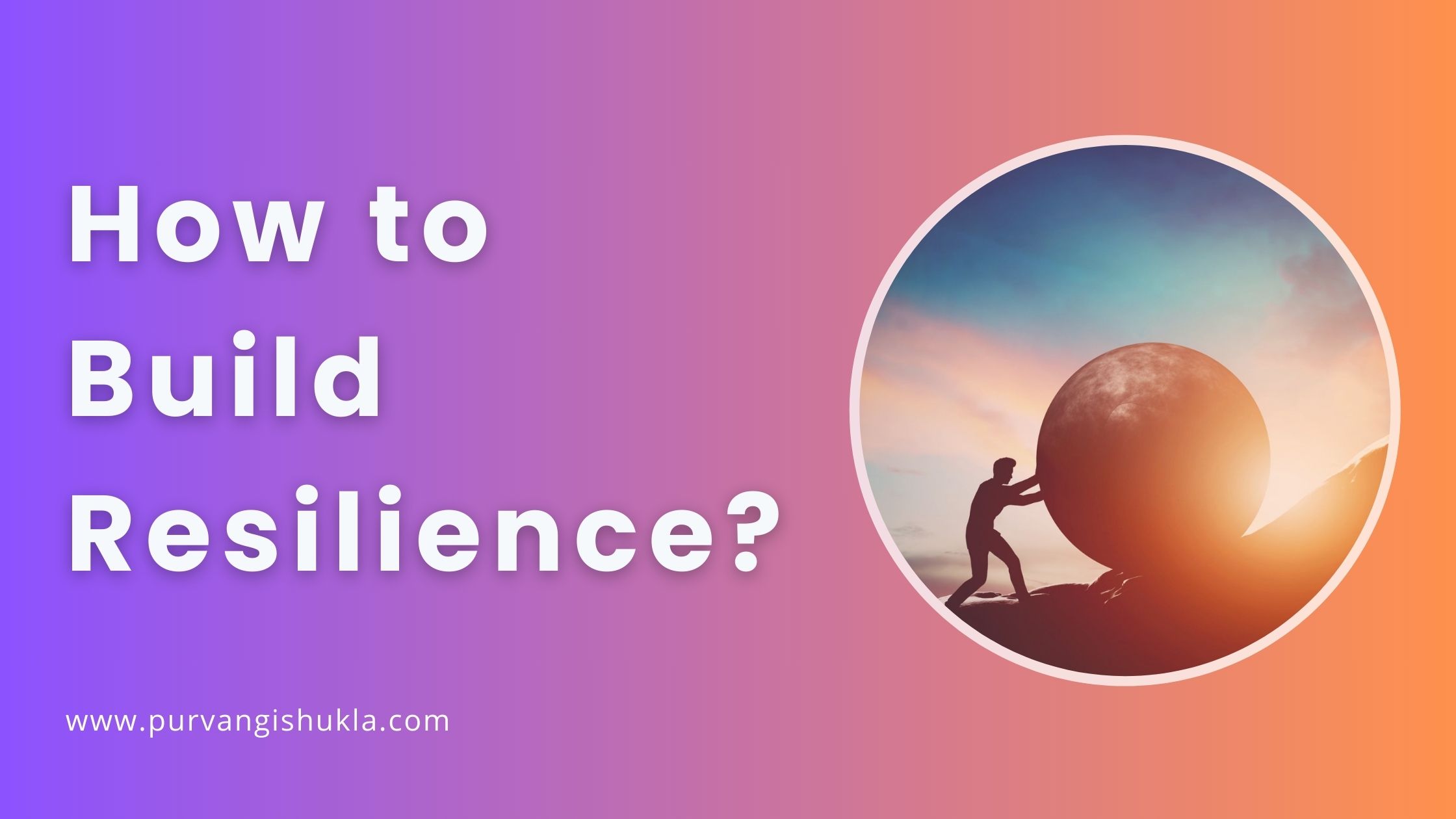Resilience does not mean only success but how you would accommodate yourself in any given conditions. Here, I am sharing the story of two persons facing similar issues and their reactions. A and B both lost their jobs and were fired. Both liked their jobs and they wanted to be back on the same job. A has reacted to this incident by becoming flexible in finding a new job.
He took his wife’s help and with the support of the family, he succeeded in grabbing a new job after several attempts. But B became upset and depressed with this incident. He became more adamant that he needs only the same job or he does not want to try for a new one. B has slowly developed a routine which made him more lazy. He is always postponing his important calls for job interviews.
He refused to take help from family and friends. He is always complaining to management because they have fired him. Now, as you are reading the above example you may find differences in reactions for the same situation. Why? Every human has different power to react differently in the same situations.
Because attitude and belief make a lot of difference in building up a Resilient personality. You may find many people jump start and come back so fast after some traumatic situation. While you may find many never able to come back. Resilience is something not always achieving something in terms of Success. But Resilience means you become flexible in tough situations or after a traumatic situation.
Today this important article will give you an insight about how to deal with a tough situation. Today you learn about Resilience.
Interpretations of Incidents
Life Events and Incidents taught us a lot. Challenges and problems in life help us to become better versions of ourselves. Hence it is important how you interpret life incidents. As we take the above example once again. “A” found a new job and he has succeeded in his career rather than becoming upset and discouraged. After a few years, “A” was found at a psychologist’s office for therapy because his wife divorced him.
Here, “B” is grateful and feels good that he has started a business and now his business is moderately successful. He thought that I always wanted to become a businessman and hence I am grateful that I lost my job. Otherwise, I might not be a successful person. It is very important after all traumatic situations how you interpret in your head.
If you see any trauma as trauma and are adamant & think, “Why has it happened to me?” Then you may lose confidence that I am capable of doing something. Remember it is important to understand how you interpreted your life’s incidents. How would you interpret your life’s incidents?
- Accept trauma as it is. When you see things as it and feel them as it is. Then you will be able to interpret it well. So let’s take the above example where you think “A” did not lose his confidence while he lost his job. But later in his life, he lost his emotionality while he faced divorce. You think is right but what do you do when you can change the situation and when you can’t change the situation? It is important to understand anything before you conclude. ACCEPT THINGS BEFORE YOU CHANGE IT.
- Blame – Game. When something is not going well in life our mind looks for excuses. You may also be part of such a blame game. When you find that some expectations did not meet then you blame others or yourself. When you provoke negative thoughts without a neutral approach to any incidents then you lose power over your emotionality.
- Accept you as you are. It is difficult many times that you accept yourself with all your flaws, weaknesses and qualities. When you introspect, introspect yourself with a whole bunch of everything. But our beliefs never give us the freedom to think beyond that. When you accept your weaknesses and limitations you have the power to see the situations with actual interpretation. And without becoming an imposter you fairly view to yourself.
Beliefs and Attitudes
If you are taking sessions from Cognitive Behaviour Therapists then they are always concerned about your conceptual cycle. In any session, they try to reach to actual cause that lies beneath the problem. Because your behaviour is a part of your thought process. As you think and feel and you act.
But where do we get our beliefs? Are we getting them by ourselves or do we take them from others? Beliefs we have since our childhood. Raising the skills of any kid determines what a person will believe about himself and others. In the same way, you also have some beliefs about yourself. Like,” I never become tough on anyone and hence people take advantage of me.”, “I found a lack of confidence while I was addressing a group of people. My mom always told me that you are a weak communicator so I am.” But these are your beliefs.
That teaches you to see things as you want to see them. But not the other way around. So in any traumatic situation find your beliefs. What do you believe about self and this world?
Attitude plays a major role in developing resilience. Because in any given situation your attitude can only give you self-confidence and build your willpower in what you want to achieve. Your attitudes towards failures, traumas and depressed situations change your view to perceive things differently. If you are facing financial issues and you find your attitude that you worried before you spent.
You find financial trauma all the time. Because that is how you can see yourself and your relationship with money. But when you develop an attitude to see yourself as always resourceful then you slowly shift towards seeing things in a positive direction. You can make a difference in what will happen to your emotions and then your behaviours.
Resilience does not necessarily success
Resilience is not necessarily a success. Resilience means emotionally and mentally you are stable and taking hold of your thoughts. Of course, this is very difficult for anyone to control thoughts due to the flow of automatic thoughts. When you learn resilience you take charge of your consciousness and your thoughts are under control. To learn resilience one needs to follow two important steps.
One learns to interpret situations and second to understand own beliefs. When you follow these important two steps you learn about resilience. It does not mean that you succeed as there are many traumas which never change. Situations are not in control and hence need to accept is one of the important tasks of resilience.
Resilience – Learn what you can change and what you cannot
What would you think once you are reading the above details? What do you find from the article? Practically if you want to change external factors it is important to change them internally first. You may face three types of things in any given situation.
- If the situation can be changed, follow your action.
- If the situation cannot be changed, then work on your emotional reactions.
- If the situation can be changed but you are distressed because you need to take some steps. So work on your emotions and actions
Resilience is a very important subject to learn especially in mental state issues. Many people I found are not ready to take even a single step.
They come to counselling sessions because they feel a psychologist can fix everything. But it is important to learn about self-behaviour. And actions are important to take to change any negative emotional stressors and beliefs.




